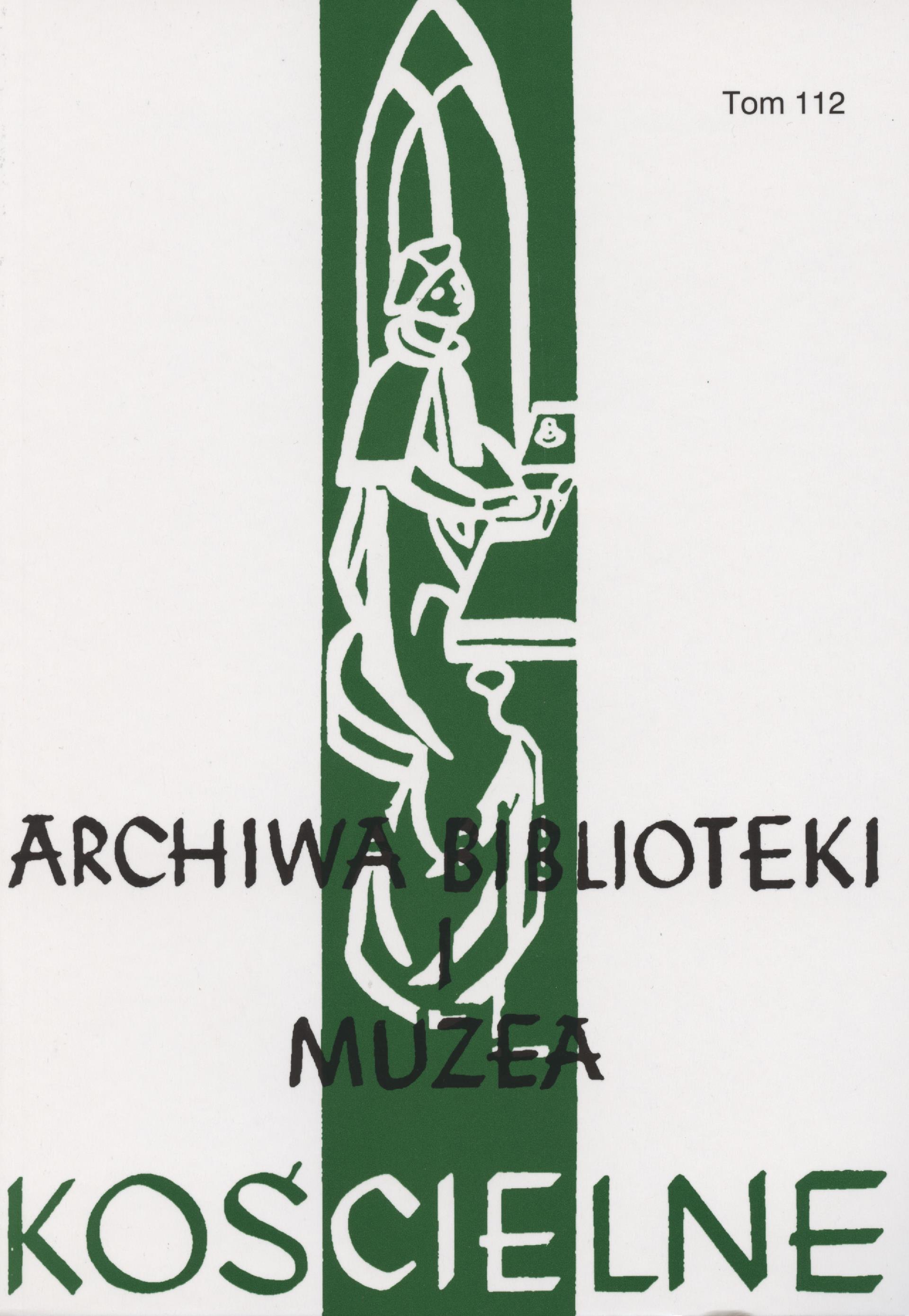Źródła do badań prozopograficznych nad duchowieństwem i personelem parafialnym diecezji włocławskiej w okresie nowożytnym
Sources for prosopographic research on the clergy and their auxiliary personnel in the parishes of the Diocese of Włocławek in the early modern period
Author(s): Tomasz NowickiSubject(s): Language and Literature Studies, General Reference Works, Library and Information Science, Theology and Religion
Published by: Katolicki Uniwersytet Lubelski Jana Pawła II - Wydział Teologii
Keywords: prosopography; the clergy; auxiliary personnel; the diocese of Włocławek
Summary/Abstract: The sources regarding modern parishes record groups of people managing and supporting these centres. These were ministrii ecclesiae, that is priests and their auxiliary personnel. The priests – ministri sacramentorum – played the most important role in a parish; their work, however, extended beyond religious and pastoral duties. As far as laypeople are concerned, they assisted priests in parish work. They were sacristans, teachers, cantors, organists, organ pumpers, bell-ringers, gravediggers, midwives and altar servers. The article presents the sources providing information on the groups mentioned above. The archival material that is analysed concerns the diocese of Włocławek in the pre-partition period. The most important and significant sources are the records of canonical visits, containing a great amount of information about the people involved in parish life. These records are not entirely consistent: they do not always include all parishes of the diocese, and above all, they differ in the scope of information, as they were produced on the basis of various questionnaires. Nevertheless, the ones containing a great number of details are invaluable sources for research on the parish clergy and their auxiliary personnel. Other sources useful for research on the parish clergy are the records produced by consistory and episcopal offices. In the latter case, these are the books of episcopal pontifical duties, which, especially the ones of holy orders, are particularly significant for research purposes. In addition, register books constitute an exceptional source of information (although rather of an auxiliary nature) for prosopographical research on the clergy and the people who helped them. Parish offices created registers systematically from the Council of Trent onwards. Consequently, the continuity of the documentation enables a comprehensive description of the subject under study. In addition, one can learn a lot about the clergy and parish auxiliary personnel from other types of sources: the records of colleges and theological seminaries, monastic books of the deceased, the description of churches and parishes provided by various authors, chapter records, diocesan schematisms (appearing at the end of the eigthteenth century), and secular records such as books from municipal offices.
Journal: Archiwa, Biblioteki i Muzea Kościelne
- Issue Year: 2019
- Issue No: 112
- Page Range: 255-275
- Page Count: 21
- Language: Polish

